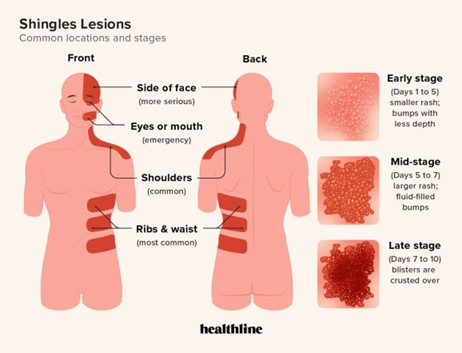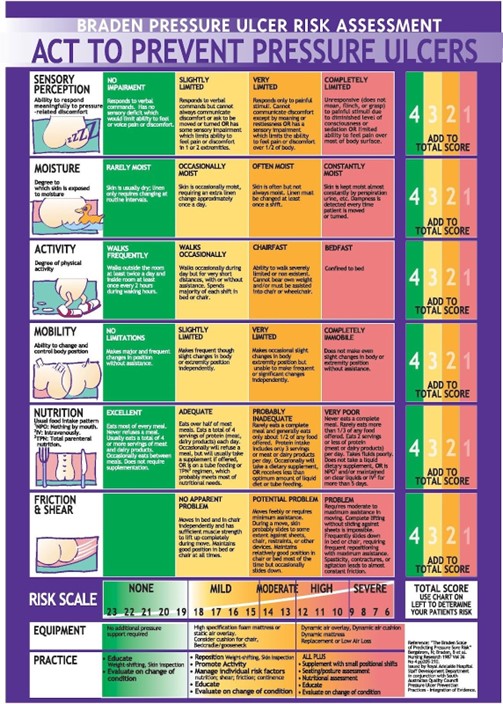A nurse at a long-term care facility is providing change-of-shift report to an oncoming nurse about a client who has shingles. Which of the following information should the nurse include in the report?
The type of transmission-based precautions in place.
The times for routine vital sign measurements.
The client's background health history.
The number of visitors the client had during the shift.
The Correct Answer is A
When providing change-of-shift report about a client who has shingles, the nurse should include information about the type of transmission-based precautions in place to prevent the spread of infection to other clients and staff. Shingles is caused by the varicella-zoster virus and can be spread through direct contact with the rash.
- The times for routine vital sign measurements may be important information to include in the report, but it is not specific to the client's condition of shingles.
- The client's background health history may be important information to include in the report, but it is not specific to the client's condition of shingles.
- The number of visitors the client had during the shift may be important information to include in the report, but it is not specific to the client's condition of shingles.

Nursing Test Bank
Naxlex Comprehensive Predictor Exams
Related Questions
Correct Answer is ["480"]
Explanation
480 mL.
The client's total oral intake over the 4-hour period is 3 ounces of milk + 2 ounces of orange juice + 3 ounces of tea + 4 ounces of water = 12 ounces. Since there are approximately 30 mL in 1 ounce, the client's oral intake in mL is 12 ounces * 30 mL/ounce = 360 mL.
The client is also receiving dextrose 5% in 0.45% sodium chloride at a rate of 30 mL/hr by continuous IV infusion. Over a 4-hour period, the client will receive a total of 30 mL/hr * 4 hours = 120 mL from the IV infusion.
Therefore, the client's total intake for that 4-hour period is 360 mL (oral intake. + 120 mL (IV infusion) = 480 mL.
Correct Answer is C
Explanation
The Braden scale measures six elements: sensory perception, moisture, activity, mobility, nutrition, and friction/shear. Each element has a range of one to four points, with a total possible score of 23 points. The lower the score, the higher the risk for pressure injury.
Option a is incorrect because each element has a range from one to four points.
Option b is incorrect because the lower the score, the higher the pressure injury risk.
Option d is incorrect because the client's age is not part of the measurement.

Whether you are a student looking to ace your exams or a practicing nurse seeking to enhance your expertise , our nursing education contents will empower you with the confidence and competence to make a difference in the lives of patients and become a respected leader in the healthcare field.
Visit Naxlex, invest in your future and unlock endless possibilities with our unparalleled nursing education contents today
Report Wrong Answer on the Current Question
Do you disagree with the answer? If yes, what is your expected answer? Explain.
Kindly be descriptive with the issue you are facing.
